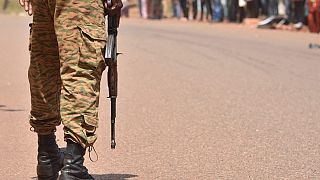France
France said on Thursday that it was recalling its ambassador from Burkina Faso, a day after agreeing to demands from the ruling junta to pull out troops from the former French colony in Africa's Sahel region.
"In the context of the latest developments in Burkina Faso, we have decided to recall our ambassador to Paris for consultations on the state and perspectives of our bilateral relations," the foreign ministry said.
Burkina on Monday said it had asked France to withdraw within a month its contingent of some 400 troops currently stationed in the country and on Wednesday Paris agreed to do so.
It marked the latest scaling down of France's military presence in Africa after the junta in neighbouring Mali also insisted French troops leave and President Emmanuel Macron drew the curtain on the over decade-long anti-jihadist mission.
Both Mali and Burkina Faso fell out with Paris after a military coup brought a junta to power and the French presence became increasingly unpopular among the public.
Jihadist activity continues in the region while concern grows over the increasing influence of Russia, in particular through the presence of mercenaries from the Wagner Group run by an ally of President Vladimir Putin.
Burkina is one of the poorest and most volatile in Africa.
Thousands of troops, police and civilians have been killed and around two million people have fled their homes since jihadists launched an insurgency from neighbouring Mali in 2015.
More than a third of the country lies beyond the control of the government, and frustration within the army at the mounting toll triggered two coups last year.











Go to video
Equatorial Guinea secures investment-grade rating — But for how long {Business Africa}
Go to video
Grand funerals of the Bôbô: Honoring the dead and celebrating unity
Go to video
Burkina Faso military government says it thwarted "major" coup attempt
Go to video
South Sudan to send delegation to the U.S. in a effort to appease tensions
Go to video
Uganda plans law to allow military prosecution of civilians
Go to video
France expels 12 Algerian officials amid diplomatic tensions